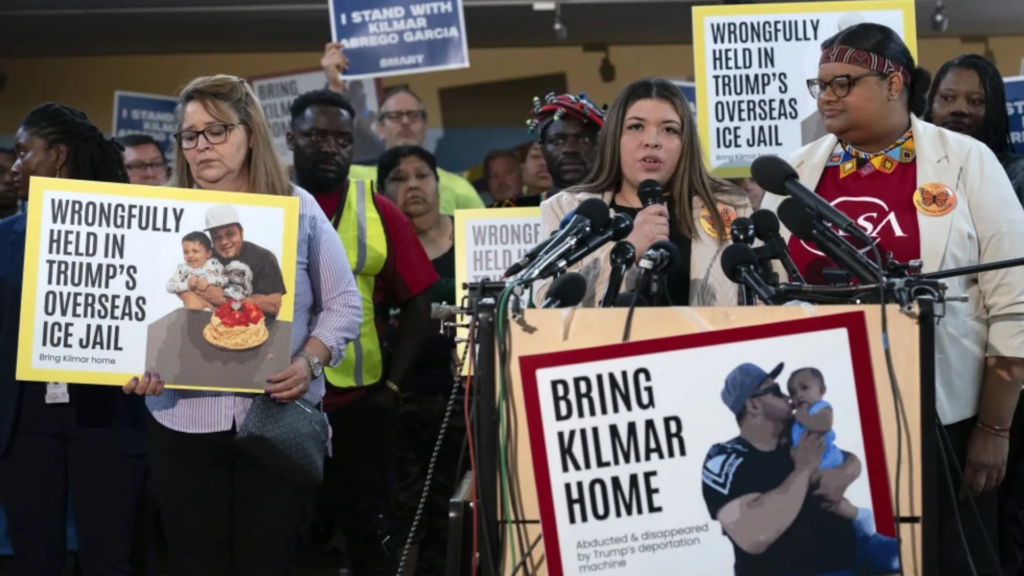Trump Seeks Supreme Court Block on Garcia’s Return
Kilmar Abrego Garcia is a Salvadoran national who has lived in the U.S. since 2011. He is married to a U.S. citizen and has three U.S.-born children.

Despite a 2019 court order protecting him from deportation due to potential persecution risks, Garcia was deported on March 15, 2025, due to what the administration described as an “administrative error” or “clerical mistake”
Legal Proceedings
U.S. District Judge Paula Xinis issued an order requiring the government to return Garcia to the U.S. by 11:59 p.m. on Monday, April 7, 2025, labeling his deportation as “entirely unlawful”.
The 4th Circuit Court of Appeals denied the administration’s request to pause this order, leading the administration to appeal to the Supreme Court
Trump Administration’s Appeal

They claim that El Salvador cannot be compelled to return Garcia, as he is in Salvadoran custody, and that the deadline set by the lower court is “arbitrary” and “unfeasible”.
The administration also asserts that Garcia is affiliated with the MS-13 gang, which is classified as a terrorist organization by the U.S. However, Judge Xinis noted that no evidence supports this claim.
Potential Consequences If Supreme Court Blocks the Order
Legal Precedent
The decision would set a precedent regarding the limits of judicial authority in matters involving international relations and deportation.
It could influence future cases where the executive branch challenges judicial orders related to immigration or foreign policy.
Constitutional Implications
Blocking the order might be seen as a validation of the executive branch’s authority over matters traditionally considered within its purview, such as foreign relations and immigration enforcement.
This could lead to discussions about the balance of power between the branches of government.
Immigration Policy
The ruling could embolden the administration to pursue more aggressive immigration policies, potentially leading to increased deportations or stricter enforcement measures.
This could exacerbate tensions between the administration and immigrant communities.
Read this:
The decision might strain relations with El Salvador and other countries involved in deportation agreements. It could also impact how other nations perceive the U.S. commitment to international law and human rights.
The ruling could lead to public outcry and political backlash, particularly if it is perceived as undermining judicial authority or exacerbating humanitarian issues related to deportations.
Depending on public and political reactions, Congress might consider legislation to address the balance of power between the branches or to clarify the role of the judiciary in immigration matters.


 Harvard University Sues Trump Administration Over Funding Freeze
Harvard University Sues Trump Administration Over Funding Freeze  Carney Vows to Confront Trump in Heated Election Debate
Carney Vows to Confront Trump in Heated Election Debate  China Calls on Trump to Reverse Tariff Policy
China Calls on Trump to Reverse Tariff Policy  U.S. Inflation drops to 2.4%
U.S. Inflation drops to 2.4%  Chinese Yuan Plunges to Lowest Level in 18 Years
Chinese Yuan Plunges to Lowest Level in 18 Years  Trump Trade War with China, Imposes 125% Tariffs
Trump Trade War with China, Imposes 125% Tariffs